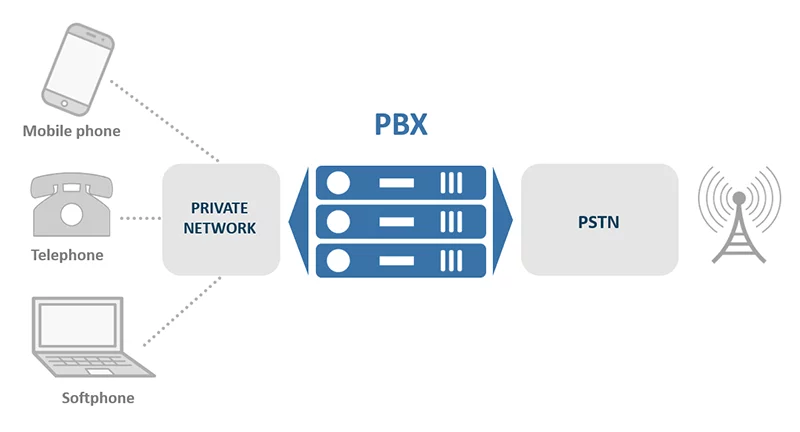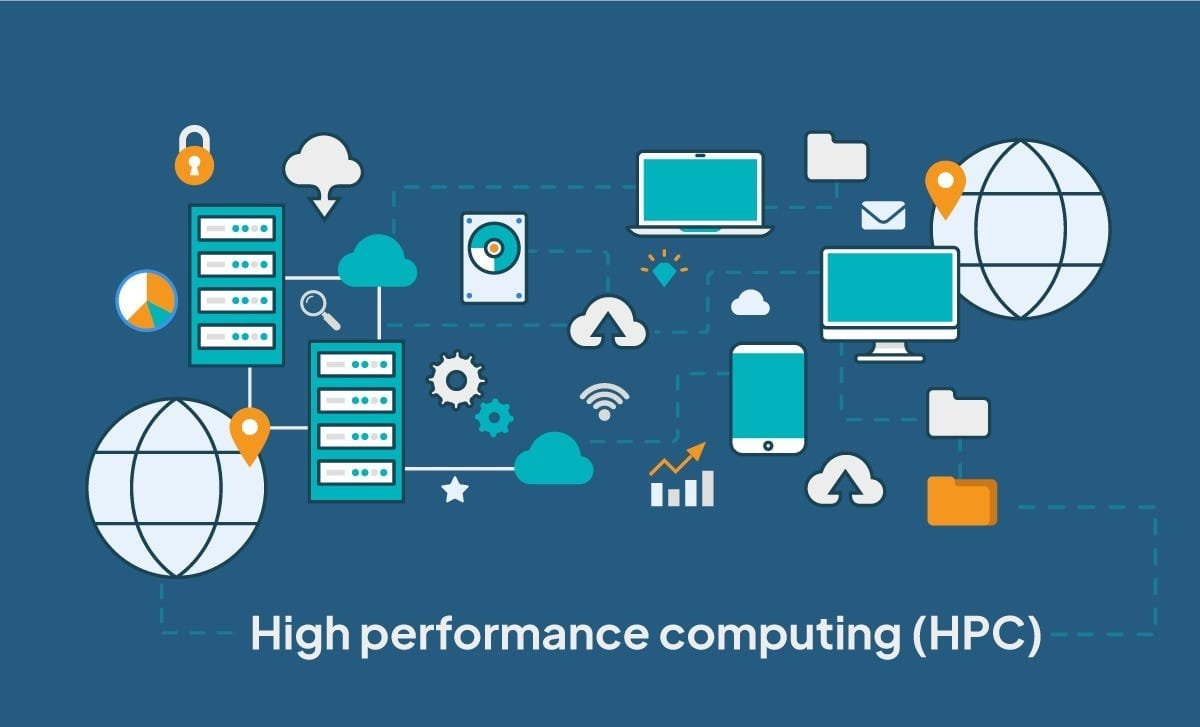Technology is something that is central to the modern world and helps us live in a more convenient, efficient and cool fashion. This can be clearly seen in our personal lives where tech gives us social media platforms to catch up with friends on or music-streaming platforms to enjoy the latest tunes with.
Technology, of course, is also critical to the business world in modern times and is something all firms rely on now. It is impossible to imagine any contemporary company, for example, not having its own website or not using email to communicate with customers. Of all the technology in the workplace though, it is the internet and online platforms, tools and resources which are the most vital. In addition, the IT networks that sit behind this and enable companies to operate online are just as important.
Cybercrime key to think about for all organizations
There is no doubt that the IT networks and online connectivity that underpin modern business has many benefits. From enabling firms to sell goods online to allowing them to market to a wider audience, engage with customers via live chat or use cloud-based platforms to streamline their operations, the digital evolution of the corporate world is undoubtedly a good thing for all involved.
This increasingly online business world, though, has led to the dark shadow of cybercrime become something of an issue. When you look at cybersecurity stats for 2022, there is no disguising the threat this type of online crime poses and how important it is for companies to protect themselves from it.
By doing so, they not only prevent themselves from becoming a victim of online crime and harming their brand image but also keep customers’ sensitive details safe. Taking measures to guard against online criminals also means firms avoid being penalized for lax cybersecurity and stop online crime impacting their daily operations.
Cybersecurity is key for modern organizations
With this in mind, cybersecurity is one employment sector that is seeing a rising demand from business. This is because professionals in this field are experts in keeping hackers at bay and protecting business IT networks, databases and systems.
When you couple this rising demand for cybersecurity experts in business with the competitive salaries they enjoy and the rewarding nature of the work, it is no surprise to see it’s a popular career choice for people who love IT. But how can you get into it?
As you may imagine, the tech, tools and software involved in cybersecurity means that you need specialist knowledge to work in the industry. If you are wondering how to become a cybersecurity analyst, it is therefore crucial to get the proper training behind you. With the ability to complete studies from the comfort of your own home and the chance to graduate in just 18 months, St Bonaventure University’s program is the ideal foundation for a career in the industry.
Cybersecurity experts need to excel in key skills
There is no doubt that getting the right training is important if you want to thrive as an online security specialist. This is because it not only gives you the relevant qualifications to apply for jobs but also develops the core skills any cyber expert needs.
But which skills might this be?
Core IT/technical skills
This is something of a no-brainer when it comes to the essential skills any cybersecurity specialist needs to rise to the top. There is just no getting away from how important it is to have solid technological skills to rely on when going about your daily role.
This will help you not only perform well but also show colleagues/senior management that you are very good at what you do. In addition, a good foundation of core tech skills enables you to protect the company you work for effectively and keep hackers at bay. As online criminals themselves have excellent basic IT/tech skills, you must also have the same to keep pace with them.
Common tasks that you will need fundamental tech skills for include:
- Firewall installation and management
- OS administration and management
- Network configuration
- Database/data management
- Creation of access software
- Attack surface management
- App security
Coding
One core skill within this role that can prove very useful in terms of your career is coding. Without a good grasp of coding in a few of the most widely seen languages, you risk severely limiting how far you can go as a professional in the sector.
With this in mind, it is worth brushing up on a couple of popular coding languages used within cybersecurity roles. C, C++, and Python are good examples to start with and shouldn’t be too hard to get up to speed on.
Python, in particular, is seen across cybersecurity in general, as it can help identify/fix online business vulnerabilities. JavaScript is another programming language to consider learning because it can help cyber experts stop cross-site scripting threats.
Identifying and managing cyber risks
If you want to work in cybersecurity and plan to excel, being able to not only identify but also manage risks is a crucial skill. Both areas are ongoing tasks that anyone working in this field must pay attention to. If you do not, you can bet online criminals will, and this can lead to systems, databases or servers being left vulnerable to them.
But what does this involve exactly? Identifying risks is all about looking at a business’ current cybersecurity plans and pinpointing where they might be outdated or where they may be exposed. This can cover parts of the online network that may be open to internal or external manipulation. It also involves monitoring online business systems/networks each day to detect attacks, potential threats and new dangers.
Once these risks have been highlighted, it is then a case of managing them effectively. This involves finding ways to combat them and closing any gaps in the business’ cybersecurity arrangements. Managing risks also means keeping an eye on any measures you have put into place and amending them if they do not work as planned.
Cloud security
Cloud computing has made a huge impact on how businesses work, and this mean skills in it are essential for cybersecurity professionals. As pretty much any company you work for will use cloud-based resources in one shape or form, it is crucial to understand how they work and how to protect them from hackers.
This can commonly be seen in how firms now look for people with cybersecurity skills around cloud platforms, such as AWS. As building secure cloud systems and managing them is so key to the modern corporate world, it pays to have skills in this area.
Automating tasks with scripting
Scripting is a specific type of code that prompts software into doing something. Although some code is static, scripts are able to make not only text but also images move around. If you work in cybersecurity, skills within scripting can prove highly beneficial.
This mainly comes down to how you can use scripting within tools you create to automate repetitive tasks. This automation enables you to work more efficiently as a cybersecurity specialist and have the ability to analyze data on cyber threats within your business more effectively.
Problem solving
Problem solving is a key skill for many roles and cybersecurity positions are no exception. This makes honing your ability to solve problems something you should certainly focus on and put on your resume. Employers value people who are not only able to highlight potential issues but also can suggest how to solve them.
People who are good in this area are also able to think of solutions to current issues which others may not. All this is not only excellent for your future career prospects but also for helping you thrive in your role. For cybersecurity experts in particular, problem solving is useful when you spot a flaw in an IT network’s defenses, but there is no obvious fix for it.
If an attack has already happened, being able to solve problems can help you come up with a fix that no one else has thought of yet. On a wider scale, it can help you become a valuable resource for other IT colleagues in a business (such as an IT manager) who might turn to you for assistance with tricky issues in their own role.
Ability to work under pressure
As you may expect, the role of cybersecurity expert can be one that sometimes involves working under pressure. The most obvious example of this is when a company’s IT network is under attack from hackers, and you are the person who has to nip it in the bud before it’s too late.
These kinds of situations are not uncommon for professionals in this field but can be very pressured. It is therefore crucial to be able to not only deal with this pressure but also do so in a way which does not affect your own demeanor.
Being able to stay calm in this role is key and helps you not only think logically to make the right calls but behave professionally toward colleagues as you do. The ability to stay calm when under pressure also means you do not make any rash decisions which could make things worse and do not go to pieces when you are most needed.
Communication
As with some of the other key skills for cybersecurity specialists, finding ways to build excellent communication skills is useful. It is a critical trait if you want to reach the top of the industry and truly excel in online security.
But why is this the case? Good communication skills help cyber experts explain often complex subjects clearly to people who might not have a tech background. These skills also help cyber specialists explain themselves concisely and in a professional manner to colleagues or senior staff.
It is key to note that this is not just confined to verbal communication in person or on the phone. The modern business world dictates that cyber experts should also be able to communicate well via letter, text, email and video call.
Presentation skills
A natural secondary skill to outstanding communication skills is the ability to present information well. This is certainly a core skill that anyone who is thinking of working in cybersecurity should refine. If you can present information to colleagues confidently and also answer any questions well, you will be sure to thrive. This is because you are able to pass on vital information in a way they find accessible and easy to draw actionable insights from.
But what situations might it prove useful for? A good example is being asked to give a presentation to senior management on the firm’s current cybersecurity arrangements and where they could be improved. If you can create an effective presentation, on a standard IT package, like MS PowerPoint, and present it well to senior managers, you will showcase how effective you are in your role.
Adaptability
There is no doubt that tech moves quickly, and this can be seen in the latest AI news within tech or how much buzz there is around Blockchain in business. It is also true to say that cybercriminals move fast, too. This sees new threats emerging all the time plus the threats you had gotten a handle on mutating into new areas. To thrive as a cybersecurity expert therefore, you must be adaptable to these changes.
This sees cyber specialists keeping an eye on the latest IT news to pick up on new dangers and new tech that powers them. By doing this, they are able to adjust processes, networks and systems to tackle any fresh cyber threats effectively.
As well enabling them to do their job better, being adaptable also means cybersecurity specialists always know what is happening in their industry. This leaves them as an authoritative source of knowledge on cybersecurity that employers value.
Teamwork
Working as a cyber specialist often means working as part of a team. This could see you interacting with IT managers and other cyber professionals at the same company. It is also likely that you will need to engage with colleagues from other departments as part of your role. A good example of this is working with the customer services manager and their team to educate them on cybersecurity best practices.
It is therefore crucial that your teamwork skills are up to snuff if you want to carve out a successful career in this field. If you are not able to collaborate with other people, you will not be able to do your job properly or get others on board when trying to engage them on cybersecurity issues.
Good teamwork skills also come in handy if you have a large project you cannot handle on your own and need a team of people to provide their input. They are also useful if you come across an issue you cannot solve personally and need to work on with other colleagues as a result.
What roles within cybersecurity do these skills open up?
One of the great things about having the above core skills as an online security specialist is how well they prepare you to thrive in the sector. In addition, they also open up the full range of cybersecurity jobs to apply for — but what are some of the most popular roles that this includes?
Although this is not an exhaustive list, some of the most commonly seen are:
- Chief Information Security Officer
- Network Engineer
- Security Architect
- Network Administrator
- Information Security Analyst
- Cybersecurity Analyst
As the above shows, there is a good variety of specific roles that are open to cybersecurity experts with the right qualifications/skills behind them. This makes it an exciting and varied career to move into.
How can you let employers know you have these skills?
Possessing the core skills needed to excel in this field is one thing – but how do you let potential employers know you have them? This is vital because it enables you to show them you have what they’re looking for in a cyber expert.
The best place to begin is your resume. Most jobs will ask for you to send this in when applying, and it is the first place you can showcase your skills. A good tip is including a section for professional skills on your resume and listing the most useful ones in it. If you bullet point this and put it on the first page, it will stand out to employers.
As well as listing the core skills any cybersecurity specialists needs on your resume, it is also important to mention them if you get an interview. While you do not want to be randomly bringing them up when it is not suitable, try to include the skills you have in answers to questions. This may be explaining a few key skills that you use in your current role or those which you used on a previous project.
Thriving in cybersecurity requires specific skills
When you consider that cybersecurity specialists are experts in their field, it is no surprise that certain critical skills are needed in the role. Without these to rely on a daily basis, it is hard to perform to your maximum capabilities or truly excel in the job.
It is therefore very important that you develop the skills we have looked at if you plan to work as a cybersecurity expert. This will not only make you more appealing to potential employers when applying for positions, but you will also stand in good stead when you land your dream role.















Leave a Reply